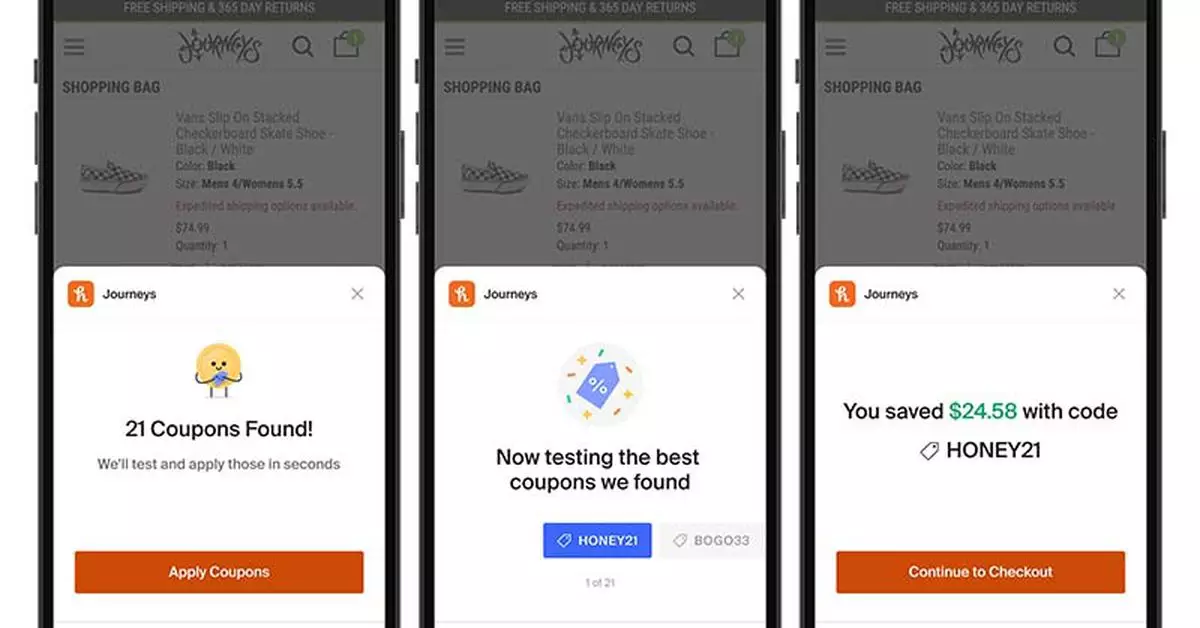In the age of online shopping, consumers are constantly searching for ways to save money and maximize their purchasing power. Enter PayPal Honey, a browser extension designed to take the legwork out of hunting for coupon codes. The idea is straightforward: as you check out on various e-commerce platforms, Honey promises to automatically scour the internet for redeemable coupon codes to provide you with the best deal possible. With its widespread popularity and promises of convenience, it has become a staple recommendation in many tech circles and online shopping tutorials.
However, recent claims have started to cast a shadow over Honey’s purported benefits. Critics, including influential YouTuber MegaLag, have labeled the extension not just ineffective but potentially deceptive. This has raised red flags regarding the ethics surrounding browser extensions like Honey, prompting consumers to reassess their reliance on such technologies.
The allegations leveled against PayPal Honey suggest that the extension engages in questionable practices that benefit the company at the expense of both consumers and content creators. According to MegaLag, the extension often fails to deliver useful coupon codes, instead opting for generic, Honey-branded deals—even when better offers are readily available through a simple web search. Many users might not realize that they could be losing out on significant savings due to Honey’s alleged strategic neglect of more favorable options.
Furthermore, MegaLag highlights an alarming practice concerning affiliate marketing. It is claimed that when consumers click on an affiliate link shared by influencers, Honey intercepts that transaction by substituting its own tracking link at checkout. Essentially, this means that even if an influencer’s guidance led a customer to a purchase, the credit for the sale goes to Honey instead. This practice undermines the integrity of affiliate marketing, leaving content creators feeling cheated out of their hard-earned commissions. Such tactics have prompted backlash from various corners of the internet, raising serious ethical questions about the responsibility of companies like PayPal in ensuring fair and transparent practices.
In the wake of such accusations, PayPal has stepped forward to defend Honey’s practices. Josh Criscoe, the Vice President of Corporate Communications, contends that the company operates in accordance with industry standards, including “last-click attribution,” a common practice in online marketing that rewards the last platform a customer interacts with before making a sale. While this may hold up under the scrutiny of marketing norms, it does little to combat the perception of exploitation that emerges when users or influencers feel their interests are being sidelined.
This defense raises additional questions: Should companies prioritize adhering to traditional marketing practices over nurturing trust and openness within the consumer-influencer relationship? As some influencers have already distanced themselves from Honey, the potential backlash to PayPal’s reputation may outweigh any short-term gains the extension offers.
The controversy surrounding PayPal Honey has ignited conversations across social media and in forums dedicated to tech and consumer advocacy. Past posts advising users to employ Honey only in separate browser sessions to avoid its affiliate hijacking have resurfaced, validating the unease some shoppers have had about the extension. Moreover, the impact on influencer partnerships cannot be overstated; how often does the specter of such practices deter influencers from endorsing products or services that could genuinely benefit their audience?
Notably, the fallout over Honey’s practices could lead to broader discussions about transparency and ethical marketing strategies in the digital space. As consumers grow more discerning and aware of the intricacies of online shopping, companies must adapt their strategies to foster genuine trust. In an age where digital convenience is tethered to ethical considerations, there is a growing demand for clarity and fairness in the myriad tools used for online shopping.
As consumers continue to navigate the complex world of online shopping, familiar and convenient tools like PayPal Honey are naturally tempting. However, it is crucial to question the underlying motives of these services, especially when faced with allegations of unethical behavior. MegaLag’s revelations serve as a reminder that vigilance is necessary in our digital shopping endeavors. Transparency and ethics should remain at the forefront as tech and commerce continue to intertwine, ensuring that convenience does not come at the cost of fairness for consumers and content creators alike.


Leave a Reply
You must be logged in to post a comment.